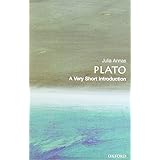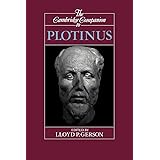
Download the free Kindle app and start reading Kindle books instantly on your smartphone, tablet, or computer - no Kindle device required.
Read instantly on your browser with Kindle for Web.
Using your mobile phone camera - scan the code below and download the Kindle app.

OK
The Cambridge Companion to Plato (Cambridge Companions to Philosophy)
There is a newer edition of this item:
- ISBN-109780521436106
- ISBN-13978-0521436106
- PublisherCambridge University Press
- Publication dateOctober 30, 1992
- LanguageEnglish
- Dimensions6 x 1.44 x 9 inches
- Print length578 pages
Similar items that may deliver to you quickly
Editorial Reviews
Review
"...should prove quite useful....For its intended audience, and also their instructors, this Companion will live up to its name, and Kraut and his contributors are to be commended." R.E. Houser, International Philosophical Quarterly
"Richard Kraut has put together a rich collection of fifteen newly-commisioned articles on various aspects of Plato's thought, plus an extensive bibliography of secondary articles and books...". Ancient Philosophy
Book Description
Product details
- ASIN : 0521436109
- Publisher : Cambridge University Press (October 30, 1992)
- Language : English
- Paperback : 578 pages
- ISBN-10 : 9780521436106
- ISBN-13 : 978-0521436106
- Item Weight : 1.7 pounds
- Dimensions : 6 x 1.44 x 9 inches
- Best Sellers Rank: #339,961 in Books (See Top 100 in Books)
- #121 in History of Philosophy
- #567 in Ancient Greek & Roman Philosophy
- #1,081 in Professional
- Customer Reviews:
About the author

Discover more of the author’s books, see similar authors, read author blogs and more
Customer reviews
Customer Reviews, including Product Star Ratings help customers to learn more about the product and decide whether it is the right product for them.
To calculate the overall star rating and percentage breakdown by star, we don’t use a simple average. Instead, our system considers things like how recent a review is and if the reviewer bought the item on Amazon. It also analyzed reviews to verify trustworthiness.
Learn more how customers reviews work on Amazon-
Top reviews
Top reviews from the United States
There was a problem filtering reviews right now. Please try again later.
Three essays in, you get a piece on the chronology of Plato's work. Great topic. But the author really means it. It examines things like the number of instances Plato wrote "indeed," and uses that as a basis to put together a timeframe. If you're interested in the chronology of the dialogues, nearly every introduction of translations of Plato's works will give you a less complicated thesis. I'm sure a lot of work went into this piece, but, again, I have no idea who the audience for this is. I'm not even sure academics would be interested, unless they're devoting their life's work into the historicity of Plato.
Other essays take otherwise clear dialogues and obfuscate them so much that you have no idea what you're reading. Almost all essays require that you're familiar with everything Plato has ever written, including the dialogues we aren't even sure he wrote. In addition, I hope you're also up to date on your Aristotle, because his works are cited in nearly every essay. So keep that in mind. To take in any of this information, you'll need to have read and studied almost every work of ancient Greek philosophy (and if you have, by the way, why would you need this book?).
The essays that aren't impossible to read serve little purpose. An essay on Platonic Love just reiterates The Symposium and Phadreus (with a hint of contempt, by the way), without adding anything new. Neither of those dialogues are particularly difficult to read, so I'm not sure why you'd need a summary. In fact, there is quite a lot of contempt in this volume.
I don't know. I can appreciate the work some of these writers put in, and something tells me there is a group of people out there for whom it will be of massive interest. I just don't know who it is. Not students, not casual readers, not teachers, and probably not even a large swath of academics. Definitely not anyone who isn't 100% well-versed in every single work of Plato and most of Aristotle. There are a few I haven't read that could very well be decent. So I don't want to dismiss it outright. You're basically just getting short thesis papers from fifteen authors who got paid to write whatever they wanted. Maybe I'm wrong. Maybe this will be of great interest to you, and I'm reading it the wrong way. But maybe "look inside" on Amazon first and ask yourself if you'll really be better off having spent fifty dollars on this. I haven't read any of the other Cambridge Companions, but I am open to ordering another one on a different subject. I doubt they have dubious intentions. Supplemental material is always great, and I'm glad volumes like this are being published. But, for most people here on Amazon, I can guarantee that at least half of these essays won't be of any interest or use to you.













